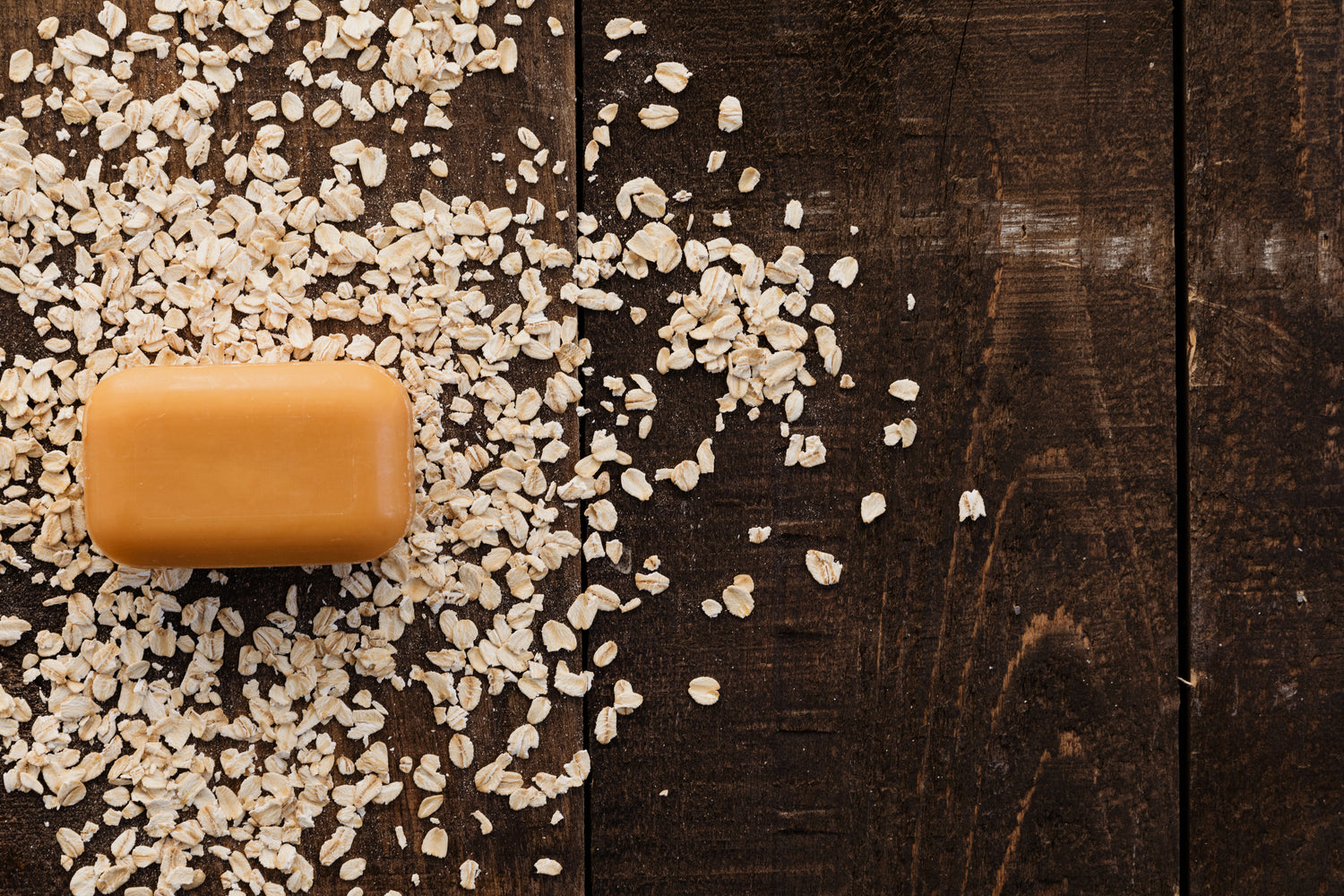
Why Artisan Soaps?
Commercial cleansers often masquerade as soap, packed with chemicals for cleaning but missing the essence of real soap. Artisan soaps are superior for several compelling reasons.
- First and foremost, they are typically crafted with natural ingredients, avoiding the harsh chemicals and detergents found in many mass-produced soaps. This means they're gentler on the skin, making them suitable for people with sensitive skin or conditions like eczema.
- Artisan soaps also retain glycerin, a moisturizing agent removed during the commercial soap manufacturing process, which helps hydrate the skin naturally. Furthermore, they are often made with a variety of oils and butters, which provide different nourishing properties and can be tailored to suit different skin types.
- Beyond the physical benefits, artisan soaps are crafted with care and attention to detail, often featuring unique blends of scents and colors that turn a daily routine into a luxurious experience.
- Additionally, buying artisan supports small businesses and reduces the environmental footprint associated with the mass production of commercial products. In essence, artisan soaps offer a more personalized, skin-friendly, and ethical choice for consumers looking for quality and sustainability in their skincare products.
The Crafting of Artisan Soaps
The crafting of artisan soaps is a meticulous and creative process, blending art and science. It starts with selecting high-quality, natural ingredients. Fats and oils like olive oil, coconut oil, shea butter, and cocoa butter are common bases, providing moisturizing properties and a luxurious feel. Lye (sodium hydroxide) is then mixed with distilled water, goat's milk, coconut milk, or other liquids, to create a saponification reaction when combined with the oils, turning the mixture into soap.
Artisans often add natural additives for their therapeutic properties and textures; these might include oatmeal for exfoliation, honey for its antibacterial qualities, or essential oils for fragrance and aromatherapy benefits. Colorants, often derived from natural sources like clays, herbs, or spices, are used to create beautiful, visually appealing bars.
The soap is then poured into molds, and once processed, is then hand-cut, groomed, and stamped. It is then left to cure, a process that can take several weeks. During this time, the soap hardens, with the water content evaporating to create a firmer bar. Once cured, the soaps are individually wrapped, with Rudy choosing eco-friendly artistically designed packaging and shipping products.
Artisans put their heart and creativity into each batch, making each bar unique. The result is a product that's not just cleansing but also nourishing, aromatic, and a small piece of art for everyday life.
More information on Ingredients
Each uniquely crafted batch of artisan soap features a distinct blend of oils and butters, carefully selected and varied according to the specific recipe and purpose of the soap being created. Not every soap contains all oils and butters, ensuring a diverse and tailored range of products.
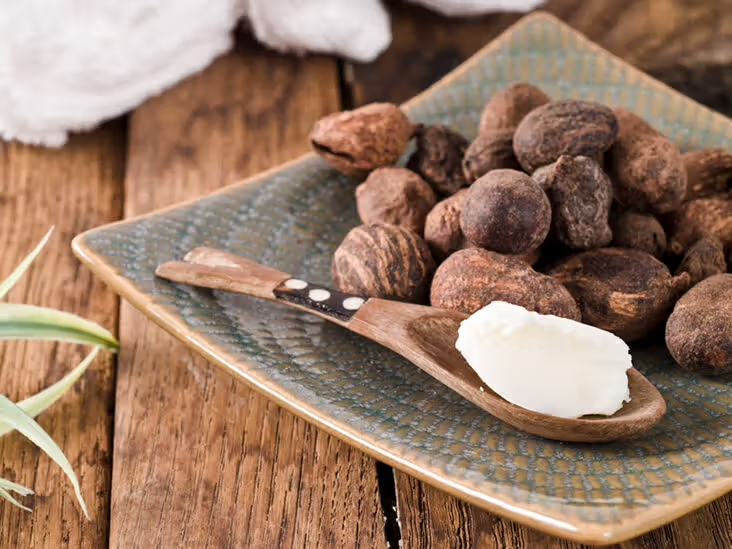
Shea Butter
Extracted from the nuts of the African Shea tree, Shea Butter rich in vitamins A and E, which are essential for healthy skin repair and protection. Its high concentration of fatty acids imbues soaps with a creamy texture and helps to retain skin's natural oils, leading to enhanced hydration.
The anti-inflammatory properties of Shea butter make it beneficial for soothing and calming irritated skin, while its antioxidants protect against environmental damage. This makes Shea butter-infused soaps a luxurious and healing choice for all skin types, especially those prone to dryness, eczema, or blemishes.
By including Shea butter, artisan soap makers create a product that not only cleanses but also deeply moisturizes and revitalizes the skin, leaving it soft, smooth, and supple.
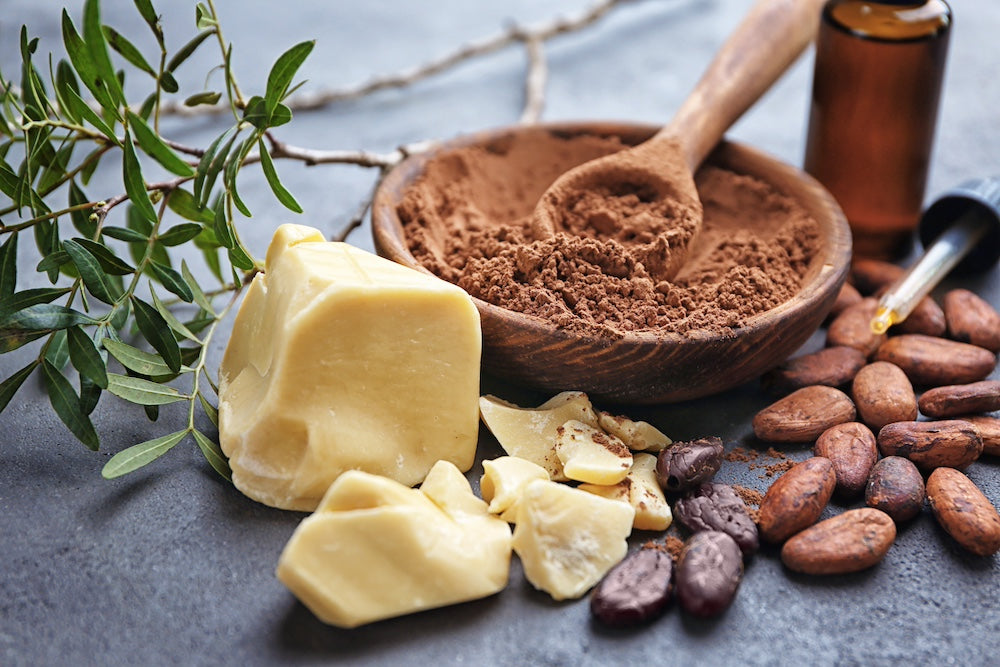
Cocoa Butter
Extracted from the cacao bean, cocoa butter is rich in natural plant compounds called phytochemicals, which improve blood flow to the skin and slow skin aging by protecting against damage from the sun's harmful UV rays.
The high fatty acid content in cocoa butter makes it a nourishing addition, creating a protective barrier over the skin to hold in moisture. Its emollient properties provide superior hydration, making it particularly beneficial for dry, itchy, or chapped skin.
Cocoa butter has natural healing properties for skin conditions like eczema or dermatitis. When incorporated into soaps, cocoa butter doesn't just cleanse; it deeply moisturizes and repairs, leaving the skin soft, supple, and rejuvenated with a pleasant, subtly chocolate scent.
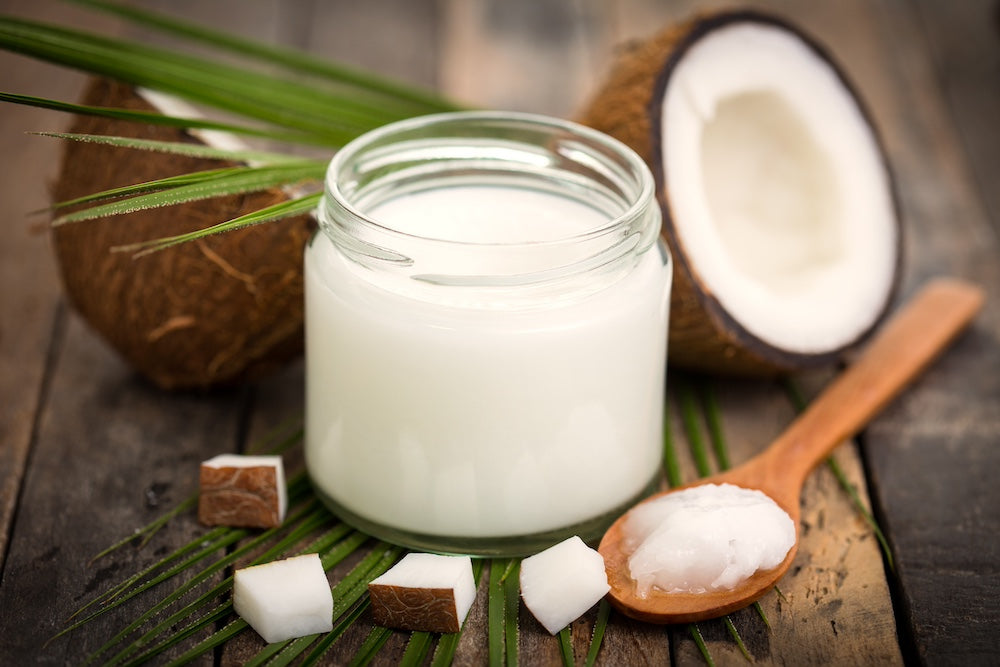
Coconut Oil
Coconut oil rich in medium-chain fatty acids like lauric acid, which have potent antimicrobial properties, helping to protect the skin from harmful bacteria and promoting a clearer complexion. These fatty acids also contribute to the soap's ability to create a luxurious, rich lather, enhancing the cleansing experience.
Coconut oil is an excellent moisturizer; it penetrates deeply into the skin to nourish and hydrate, making it ideal for those with dry or flaky skin. Its natural antioxidant properties help in protecting the skin from premature aging and environmental damage.
When used in soaps, coconut oil doesn't just cleanse; it also leaves the skin feeling soft, smooth, and revitalized, making it a popular choice for artisan soap makers seeking to offer a high-quality, skin-loving product.
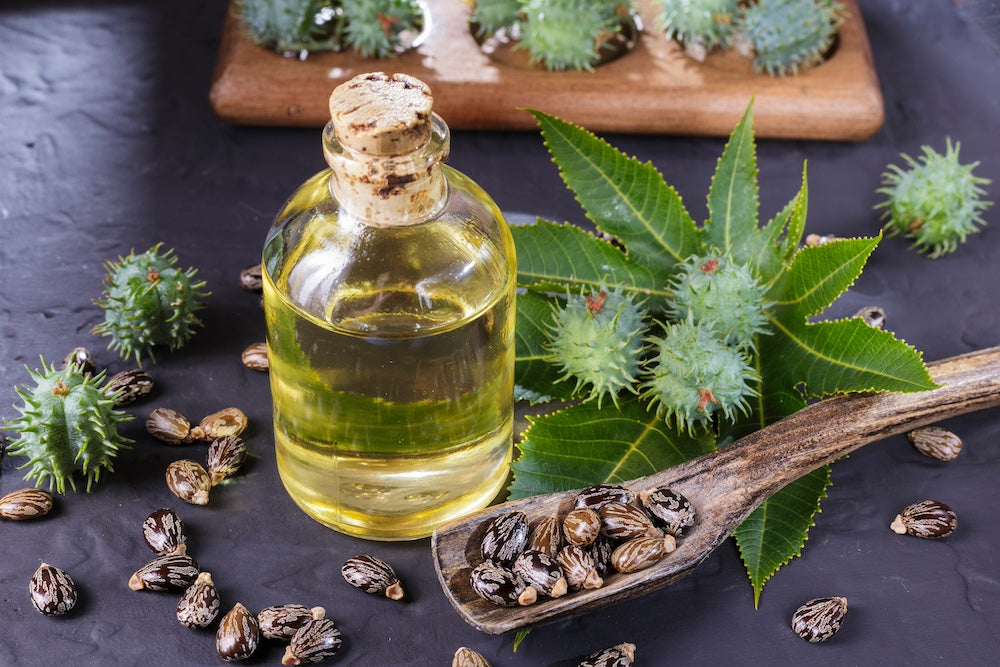
Castor Oil
Rich in ricinoleic acid, a rare fatty acid known for its anti-inflammatory and antibacterial qualities, castor oil is excellent for soothing irritated skin and combating acne. Its humectant properties draw moisture to the skin, ensuring deep hydration and a soft, supple feel.
Castor oil also boosts lather production, creating a rich, creamy foam that enhances the cleansing process while still being gentle on the skin. Furthermore, it acts as a stabilizing agent, helping to extend the soap's lifespan without sacrificing quality.
Incorporating castor oil into artisan soaps ensures a product that not only cleanses effectively but also nourishes and heals, offering a luxurious and therapeutic bath experience.
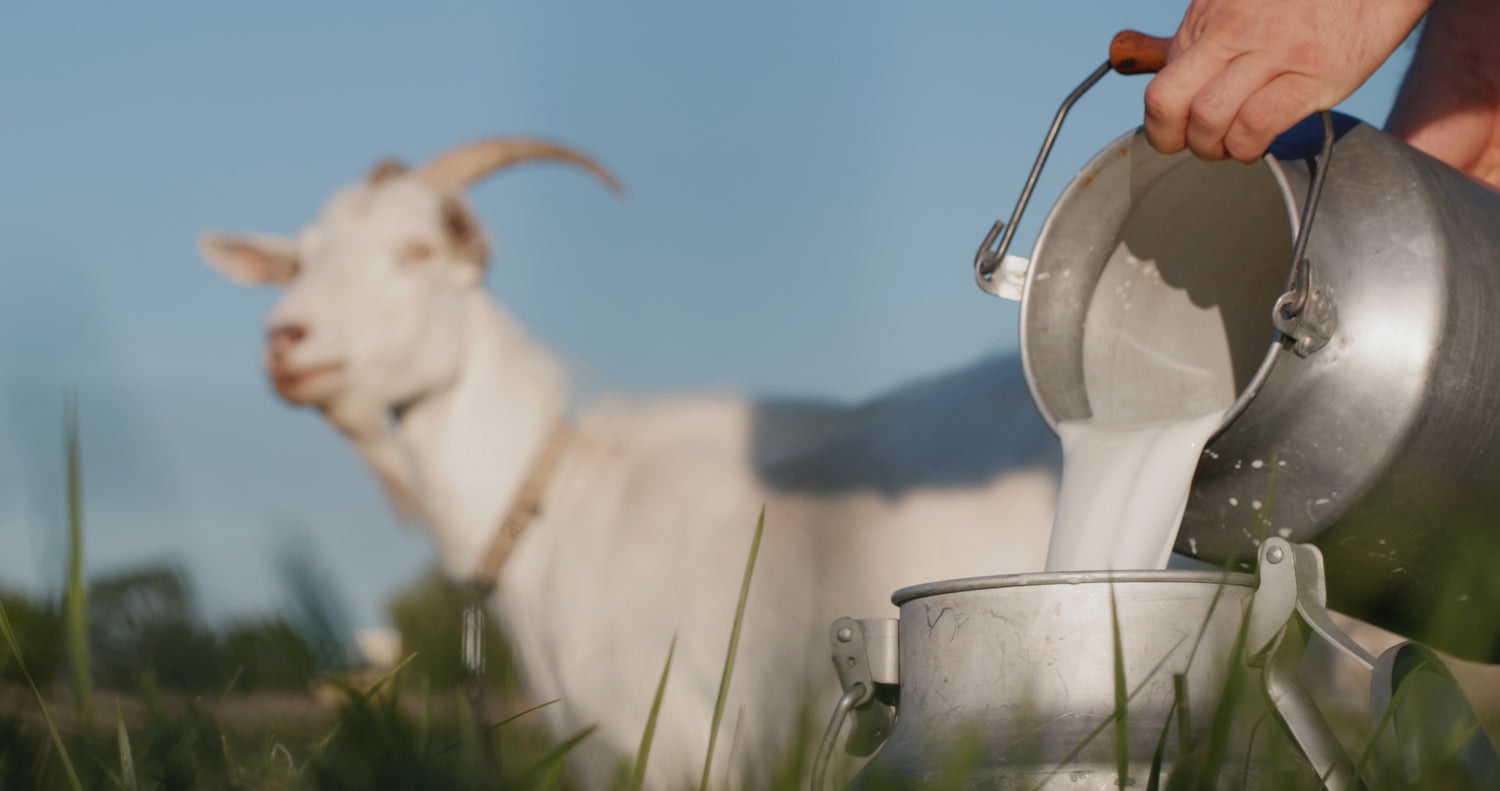
Goat's Milk
Goat's milk is highly prized in artisan soaps for its array of skin benefits. Rich in vitamins, particularly Vitamin A, it helps to repair damaged skin tissue and maintain healthy skin.
The cream present in goat's milk is a natural moisturizer, soothing dry and damaged skin while maintaining the skin's natural moisture barrier. Its high lactic acid content also makes it a natural exfoliant, gently removing dead skin cells to reveal smoother, younger-looking skin.
Additionally, the pH level of goat's milk is close to that of human skin, helping to balance the skin's microbiome and keep bacteria at bay. This makes goat's milk soaps particularly suitable for those with sensitive, dry, or problematic skin, as they cleanse without stripping the skin of its natural oils, leading to a softer, clearer complexion.
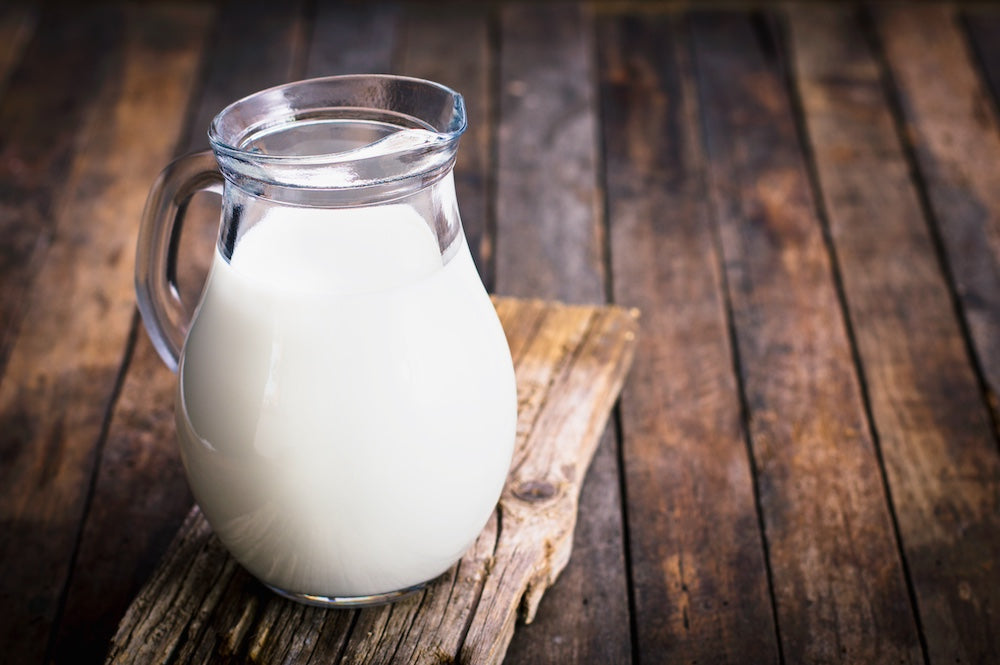
Cream
Packed with fats, proteins, and vitamins, cream deeply nourishes and hydrates the skin, leaving it feeling soft and supple. Its natural fats help to create a creamy, indulgent lather, making the soap more luxurious and enjoyable to use. These fats also provide a protective barrier on the skin, locking in moisture and preventing dryness.
The proteins in cream promote skin elasticity and regeneration, contributing to a smoother, more youthful complexion. Additionally, the presence of vitamins, particularly vitamin A, aids in repairing damaged skin tissue and maintaining healthy skin.
By incorporating cream into their soaps, artisans offer a product that not only cleanses but also richly moisturizes and pampers the skin, making it a perfect choice for those seeking a little extra indulgence in their daily routine.
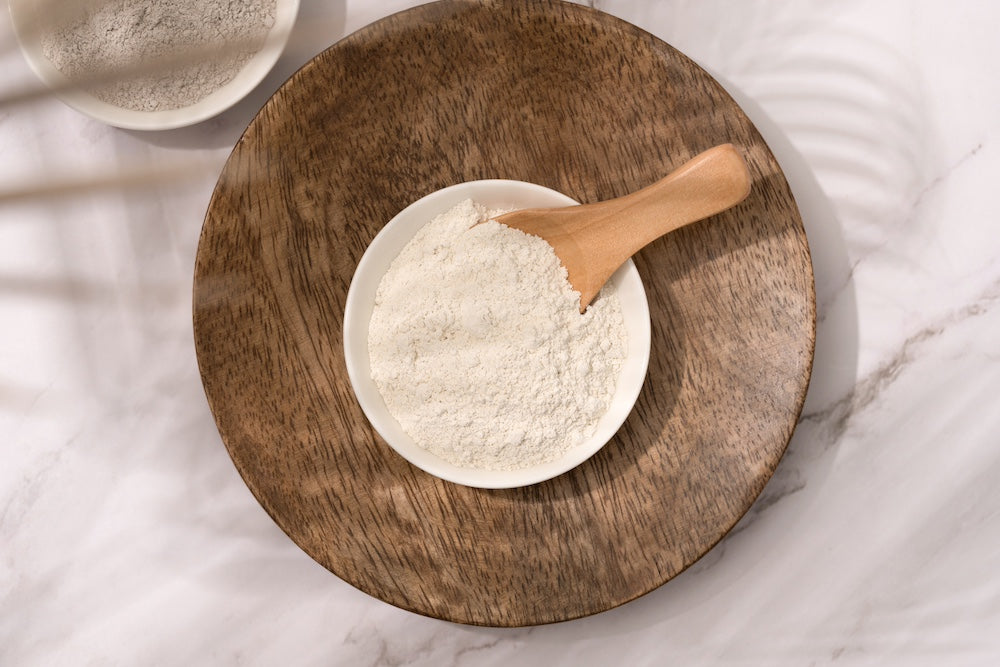
Kaolin Clay
As a natural detoxifier and exfoliant, kaolin clay gently removes impurities and excess oils from the skin without stripping it of its natural moisture, making it suitable for even the most sensitive skin types. Its fine, soft texture promotes a silky, smooth lather, enhancing the sensory experience of the soap.
Kaolin clay is also known for its ability to enhance circulation to the skin while cleansing, promoting a more toned and refreshed complexion. Furthermore, its natural absorbency helps control oiliness, making it particularly beneficial for those with oily or acne-prone skin.
By including kaolin clay, artisan soap makers create a product that not only purifies and balances the skin but also leaves it feeling soft, smooth, and revitalized.
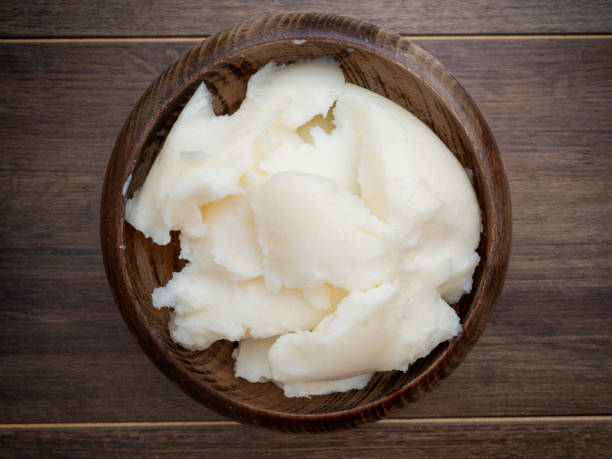
Lard
Lard is highly valued in artisan soap making for several reasons. Firstly, it contributes to a rich, creamy lather that is gentle on the skin. Unlike some commercial detergents, lard-based soaps don't strip the skin of its natural oils, making them particularly beneficial for dry or sensitive skin.
Lard also makes the soap harder and longer-lasting, which is a sought-after quality in handmade soaps. It's also a byproduct of the meat industry, making its use in soaps a sustainable choice that reduces waste.
Additionally, lard is rich in vitamins and minerals that nourish the skin, and its similarity to human skin oils means it's easily absorbed, enhancing the moisturizing properties of the soap. For artisan soap makers looking to create a high-quality, skin-loving product, lard offers a range of benefits that synthetics simply can't match.
Other ingredients ...
Coffee
Coffee offers natural exfoliation, a rejuvenating aroma, and skin-enhancing antioxidants.
Calendula
Calendula has soothing, anti-inflammatory properties and gentle, skin-nourishing effects, often lending a mild, herbal fragrance.
Jewelweed
Jewelweed has natural anti-inflammatory and soothing properties, often utilized to calm skin irritations and reactions like poison ivy.
Colloidal Oats/Oatmeal
Colloidal Oats offers gentle exfoliation and soothing properties, ideal for sensitive and dry skin, while imparting a mild, comforting scent.
